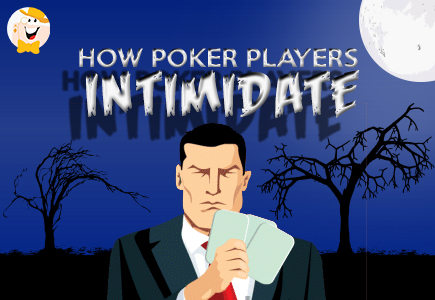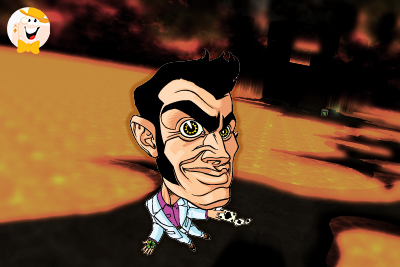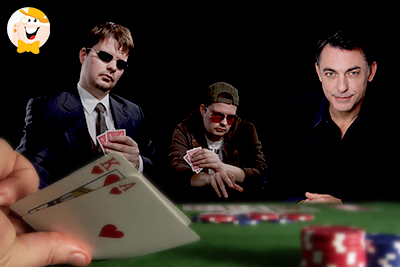
After my recent trip to Las Vegas, I became very aware of the truth of W.C. Fields statement that all poker tables are made up of thieves, varlets, scoundrels and an occasional gentleman.

Fields knew his words were correct. After all, he was a poker player, a womanizer and an imbiber of John Barleycorn who was one of those thieves, varlets and scoundrels. As for whether he was a gentleman, I will leave that to the world to judge.
Poker players, especially the older ones, don't seem to have a conscience when it comes to ethics at a poker table.
They use the most outlandish schemes to take the other players' money that it would be laughable if it wasn't so serious.
Some of the methods are fairly obvious. I played across from a man who wore thick dark glasses and chewed incessantly on a toothpick. He also had an immense stack of chips in front of him that were meant to intimidate the other players by making them think he was a super performer when he had bought all the chips before he sat down at the table.
You can imagine the fear this would heap on a new player who took a seat. They would think they didn't have a chance to win -- exactly the reaction the intimidator wanted.
Other players will wear a bracelet displayed prominently on their wrists. While some of the bracelets are actually made of gold and diamonds, others are fake, worn just for effect. I don't have to tell you how effective those bracelets are in challenging the imagination of an opposition player. They think, 'OHMYGAWD, this man cannot be beaten.' And more often than not, that is exactly the outcome of the game.
I played against super-aggressive people who would slam their chips into the pot with great gusto when they had just an average hand. They would try to stare down the other players as though to dare them to make a call.
There was one fellow who did this so often, I realized he was a habitual bluffer. I bided my time and waited like a patient fisherman who was after the big one. When I received pocket aces, I just called the pot as did several other players.

This intimidating individual re-raised the pot after the player in seat two made a raise. The player in seat two had only enough chips remaining to call the bet and make a raise of his own. Knowing he would probably take that raise and go all-in, I just called.
Sure enough, the player did go all-in and the intimidator re-raised him. One other person called and I merely called with my aces.
The flop was a dream: ace, seven, three. Sure enough, the intimidator came out betting. The other player merely called -- and so did I.
A three fell on fourth street and he came out betting. The one remaining opponent folded. I studied my cards for a long time, began to fold and finally called. Even before the dealer turned over the card on fifth street, Mr. Intimidator came out betting. The card was a king. I didn't hesitate, putting in my raise.
He studied his card and re-raised me. I put in the final raise, knowing my hand was unbeatable and he meekly called with his king-jack, giving me a big pot.
Another player used constant talk with a friend across the table in an attempt to take the players' minds off the game. This is a technique that Oklahoma Johnny Hale used effectively for years. Johnny would tell stories about cowboys and Indians. He would talk about raising chickens in Oklahoma where his father was a chicken farmer as well as a legendary seven-card stud player. His constant chatter unnerved some of the players. It confused them, which was exactly what Hale wanted.
No. W.C. Fields knew what he was talking about. Watch out for the tactics of the intimidators. Then try to develop your own way to counter-attack the them. You may not always succeed, but when you do it will be immensely fulfilling. And it just might turn a thief and scoundrel into a gentleman.
Author: Geno Lawrenzi Jr.
(Geno Lawrenzi Jr. is an international journalist, magazine author and ghostwriter and poker player who lives in Phoenx, AZ. He has published 2,000 articles in 50 magazines and 125 newspapers. If you want to share a gambling story or book idea with him, send an email to glawrenzi@gmail.com ).





